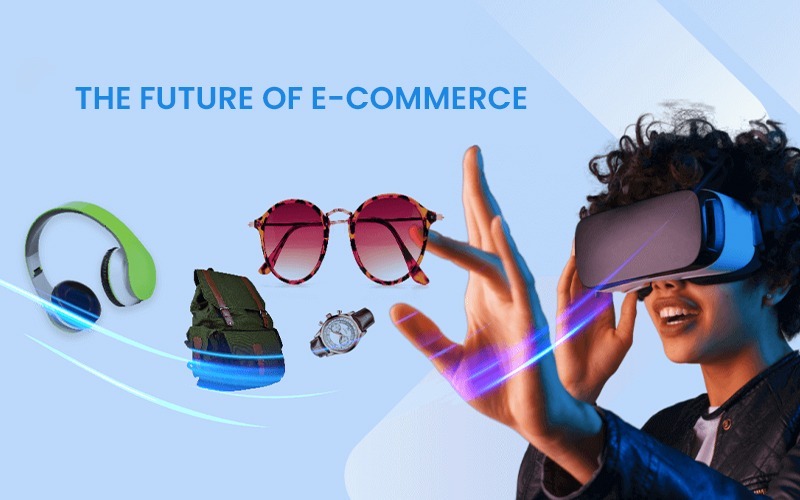In today’s digital age, e-commerce has revolutionized the way we shop, with convenience and choice at our fingertips. As we look ahead, the future of e-commerce promises even more exciting developments. Let’s explore some key trends and innovations that are shaping this dynamic industry.
1. Personalized Shopping Experiences: A Software-Driven Revolution
Firstly, we’re witnessing a shift towards highly personalized shopping experiences. Businesses are leveraging data analytics and AI technologies, developed through sophisticated software development processes, to gain deeper insights into consumer preferences. Consequently, e-commerce platforms can offer tailored product recommendations, personalized promotions, and individualized content, making the shopping experience more relevant and engaging for each customer.
2. Augmented Reality (AR) and Virtual Reality (VR): Bridging the Gap Between Physical and Digital
Furthermore, AR and VR technologies are revolutionizing the way customers interact with products online. Through AR/VR applications, developed with specialized software, customers can visualize products in their own environment before making a purchase. This not only enhances confidence in buying decisions but also reduces return rates, ultimately leading to a more satisfying shopping experience.
3. Voice Commerce: The Rise of Hands-Free Shopping
Adding to the convenience factor, the rise of smart speakers and virtual assistants has led to the growth of voice commerce. Software development plays a crucial role in optimizing e-commerce platforms for voice search, ensuring products are easily discoverable through voice commands. This hands-free approach to shopping offers both speed and ease, catering to the fast-paced lifestyles of modern consumers.
4. Sustainability and Ethical Shopping: Values Driving Choices
Moreover, consumers are increasingly seeking out sustainable and ethical products. E-commerce platforms are responding by showcasing eco-friendly options, transparent supply chains, and responsible packaging. Software development can aid in creating features that highlight these aspects and connect conscious consumers with suitable products, aligning shopping choices with personal values.
5. Drone Delivery and Autonomous Vehicles: Reshaping Fulfillment Logistics
In terms of delivery, advancements in drone technology and autonomous vehicles, driven by complex software development, promise faster and more efficient delivery options, particularly for last-mile delivery. This can significantly improve the customer experience and reshape e-commerce fulfillment, leading to quicker and more convenient delivery solutions.
6. Subscription Services and Membership Models: Convenience and Value
Meanwhile, subscription-based e-commerce models offer convenience and value to consumers while providing businesses with predictable revenue streams. Software development is essential for managing subscriptions, personalizing offerings, and ensuring a seamless customer experience, making this model increasingly appealing to both businesses and consumers.
7. Social Commerce: Where Shopping Meets Socializing
Additionally, social media platforms are integrating e-commerce functionalities, creating a seamless shopping experience within social networks. Software development is key to integrating shopping features into social media platforms and facilitating social commerce interactions, blurring the lines between online socializing and shopping.
8. Blockchain Technology:
Building Trust and Transparency Finally, blockchain technology offers enhanced security, transparency, and trust in e-commerce transactions. Software development is crucial for building blockchain-powered marketplaces and integrating blockchain solutions into existing e-commerce platforms, paving the way for a more secure and reliable online shopping environment.
Conclusion
The future of e-commerce is dynamic and full of potential. From personalized shopping experiences to innovative technologies like AR, VR, and voice commerce, businesses are redefining the way we shop online. Sustainability, fast delivery methods, and seamless integration with social media are becoming standard practices. As we embrace these trends and innovations, e-commerce will continue to evolve, offering consumers unparalleled convenience and choice in the digital marketplace.







Leave a Comment